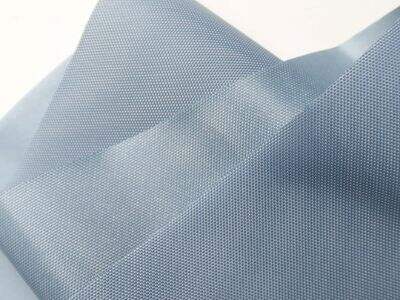There are some things to consider when picking the best nylon for products that need to be super strong. What it's going to be used on, how durable or strong it needs to be, and in what conditions it will be put. Let's examine these further so we know which one to choose.
What will you use it for?
First, we need to consider use of the water-resistant material. Do we need it to be flexible and be able to curl a lot without breaking, or do we need to make it relatively stiff? If we know that, then we can select the appropriate form of nylon. We also need to consider how hot or cold it will be where the nylon will be used. Nylon has the ability to bear more heat than other types of nylon, so that's a consideration.
Different Kinds of Nylon
There are a few different types of nylon, so it's a good thing to know a little bit about a few of them. Some are better for heavy-duty applications like car parts, but others can be suited perfectly for fishing nets that will be able to bend without breaking. Knowing the different types, we can choose the one that is "just right" for the task.
Strengthening and Toughening Nylon
We can do some things to get our nylon strong and hard. It is very important that we notice that the nylon is good quality and not perforated by pin holes or areas where it becomes soft. We don't want to let the blade lay against sharp edges or abrasive surfaces that will soften it. We can make it last long indeed if we take special care of our nylon.
And at other times we may be able to add some special items to the nylon to make it even better. Little pieces of metal or plastic may be added in order to make the nylon more stronger or more flexible. By incorporating these into the nylon when we are manufacturing it, we can produce a material that is just right for the job.
Choosing Nylon for Rugged Applications
Lastly, there are a few specific issues that we might want to consider how the nylon will respond to. If the nylon will be used close to something that gets very hot, we must select a type that will not melt or become flaccid when heatec. The same if it's going to be close to acids, or oils, for that matter, that will degrade it faster. By choosing a nylon that is resistant to these kinds of challenges, we can achieve success with our project.
With water resistant fabric in mind, when choosing the perfect nylon for heavy-duty projects, we have to think about what it will be exposed to, how much wear and tear it will need to withstand, and the conditions that it will be exposed to. We compare them, we take care of it well, we apply special items on it in order to make it better, and we have a material perfect for the job. Through these tips, we can ensure our project hits it big and our nylon perform at optimum.

 EN
EN
 AR
AR
 BG
BG
 HR
HR
 CS
CS
 DA
DA
 NL
NL
 FI
FI
 FR
FR
 DE
DE
 EL
EL
 HI
HI
 IT
IT
 JA
JA
 KO
KO
 NO
NO
 PL
PL
 PT
PT
 RO
RO
 RU
RU
 ES
ES
 SV
SV
 CA
CA
 TL
TL
 IW
IW
 ID
ID
 LV
LV
 LT
LT
 SR
SR
 SK
SK
 SL
SL
 UK
UK
 VI
VI
 TH
TH
 TR
TR
 FA
FA
 GA
GA
 BE
BE
 BN
BN

